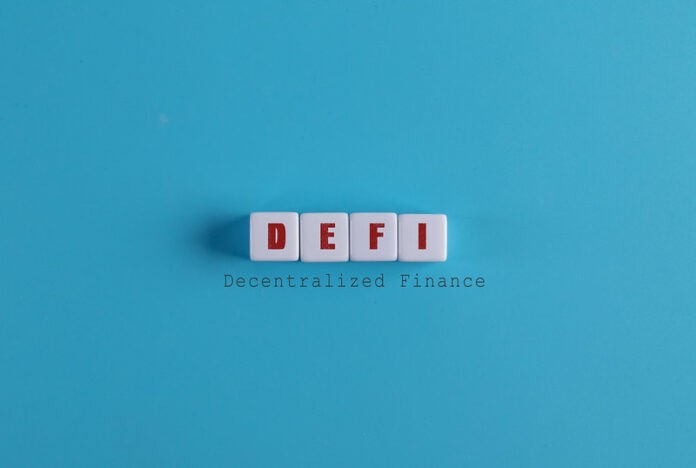Typically, DeFi loans need to be overcollateralized, but this might change soon. Let’s take a look at three uncollateralized DeFi lending platforms.
someone borrowed 500k in an UN-COLLATERALIZED loan !!
jeez…. #InnovationOnPolygon spilling out of the blockchain to IRL. https://t.co/N2jLaFFzho pic.twitter.com/D1KSuj6Z3X
— Hamzah Khan (@_khanhamzah) April 26, 2022
TrueFi: DeFi’s first on-chain credit score
Under the TrueFi protocol, stakers of the platform’s TRU token rate the creditworthiness of borrowers through governance voting. Only borrowers that are whitelisted through this process can apply for a loan.
So far, TrueFi only accepts institutional investors for whitelisting. Current borrowers with outstanding loans are Alameda Research, the Amber Group, and delt.ai. Since the protocol’s inception, TrueFi has issued loans totaling 1.4 billion USD, of which 1 billion USD has already been repaid without any defaults.
In case a default does occur, lenders are protected by the protocol’s SAFU fund: TRU stakers are liable for any defaults, so they need to choose trustworthy borrowers wisely. If a default occurs, up to 10% of the staked funds can be slashed and transferred to the SAFU fund to cover the bad loan. Should the amount in the SAFU fund not be sufficient to repay the loan, the protocol issues and sells more TRU tokens. Additionally, TrueFi kicks off a legal recovery process against the debtor to recoup the lost funds.
Teller Finance: Uncollateralized loans for DeFi investments
Teller Finance seeks to introduce both secured and unsecured loans. The secured loans can have a collateralization ratio of as little as 20%. In order to apply for an unsecured loan, users need to stake at least one of the protocol’s Fortune Teller NFTs, which can be liquidated in case of a default. Furthermore, they need to connect their bank account and their crypto assets to the protocol and can receive a credit line of up to 10,000 USD.
Teller uses a credit risk algorithm to calculate the loan terms for each user, based on the collateral provided by them, their bank balance, and their monthly income. In case of an undercollateralized loan, the funds are held in an escrow account where they can only be used for certain whitelisted DeFi protocols, to mitigate the risk of default.
USDC.homes: DeFi loans for real estate
Most recently, Teller and TrueFi jointly launched the USDC.homes platform, which enables real estate mortgages with a term of up to 30 years. Users can borrow up to 5 million USD at a down payment of 20% in crypto. Depending on the user’s credit risk, rates can be as low as 5.5% and the down payment is invested in other DeFi protocols, which can partially offset the interest rate.
So far, USDC.homes enables mortgages for property in Texas. The first borrower to use the platform took out a 500,000 USD mortgage for a 680,000 USD home in Austin. On their Medium blog, Teller CEO Ryan Berkun said that he is excited to unveil the first-ever DeFi mortgage platform, adding:
USDC.Homes empowers potential home buyers to leverage their digital asset holdings to access a mortgage, opening up the doors for crypto-natives that have historically been locked out of the traditional mortgage lending process. This innovative mortgage loan market, built on the Teller protocol, integrates a mainstream user experience with the digital asset backend infrastructure of DeFi.
















